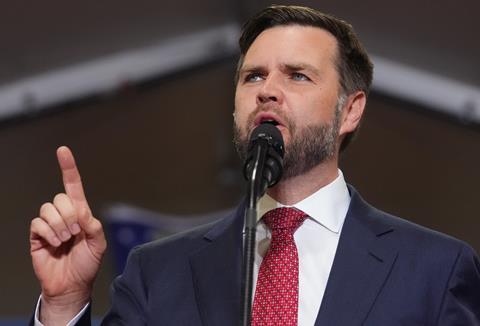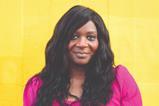JD Vance is wrong to pick on childless women, says Chine McDonald. Without their commitment and service, the Church would not exist

Some of my best friends are ‘cat ladies’ – the offensive slur describing childless women used by JD Vance, the US Republican vice-presidential nominee – that sparked global outrage when an old interview of him resurfaced.
Criticising the current vice-president Kamala Harris, Vance said: “We’re effectively run in this country… by a bunch of childless cat ladies who are miserable at their own lives and the choices that they’ve made”. Vance also argued that not having children meant you had no ‘direct stake’ in the future.
This argument that being childless – whether by choice or being single not by choice or because of fertility challenges, or baby loss – is not just confined to fiery US elections. In the 2016 Conservative leadership race, Andrea Leadsom apologised after appearing to suggest she’d make a better prime minister because she was a mother, and her opponent, Theresa May was not. Leadsom had said that her motherhood meant she “had a very real stake in the future”, implying that those who were not mothers did not.
When it comes to motherhood and leadership, women are damned if we do, and damned if we don’t. Female leaders are looked on with suspicion if they do not have children; but are also looked on with suspicion if they lead when there is still an underlying assumption that they should really be at home looking after their kids. We still don’t make these assumptions about men.
When it comes to motherhood and leadership, women are damned if we do, and damned if we don’t
Now, I do not like cats, but I couldn’t do life without the ‘cat lady’ women I know (most of whom do not actually have cats). I don’t just love them because they babysit my children and form part of the village that all families need to help raise future generations – although for these I am forever grateful. I appreciate them for who they are, regardless of their parental status.
The Church too would not exist without the commitment and dedication of childless women who lead, serve and give financially. I have been struck time and time again in my years working in charity fundraising of the generosity of older generations of ‘childless cat ladies’ who give significant legacies to worthy causes after they have gone. To suggest that these women did not have a stake in the future because they did not have children? Ludicrous.
Everyone’s story is, of course, different. Some of my friends would love to be parents, but things haven’t worked out. Some of my friends are certain they do not want to be parents, and relish the freedom that comes with that decision. Whatever the reason, the characterisation of them as having no stake in the future assumes a world in which people are only capable of thinking about themselves, and by extension, their offspring. Even if this feels natural, we as Christians are called to think beyond our own self-interest.
The late US author Toni Morrison in a speech given in 2000, criticised political discourse around the future for “our” children. Instead, she said we should speak simply of “the” children. “Our children stretches our concern for two or five generations.The children gestures towards time to come of greater, broader, brighter, possibilities – precisely what politics veils from view.”
This is not to deny the fundamental shift I have had in my outlook on God, life and the universe since becoming a mother. Motherhood fundamentally changed me. But I believe God speaks to us through our particular experiences: single or married, parents or not.
There is, of course, one key example of someone who cared about the future, despite not having children: Jesus.







































1 Reader's comment